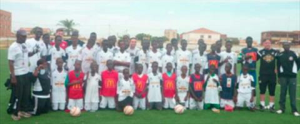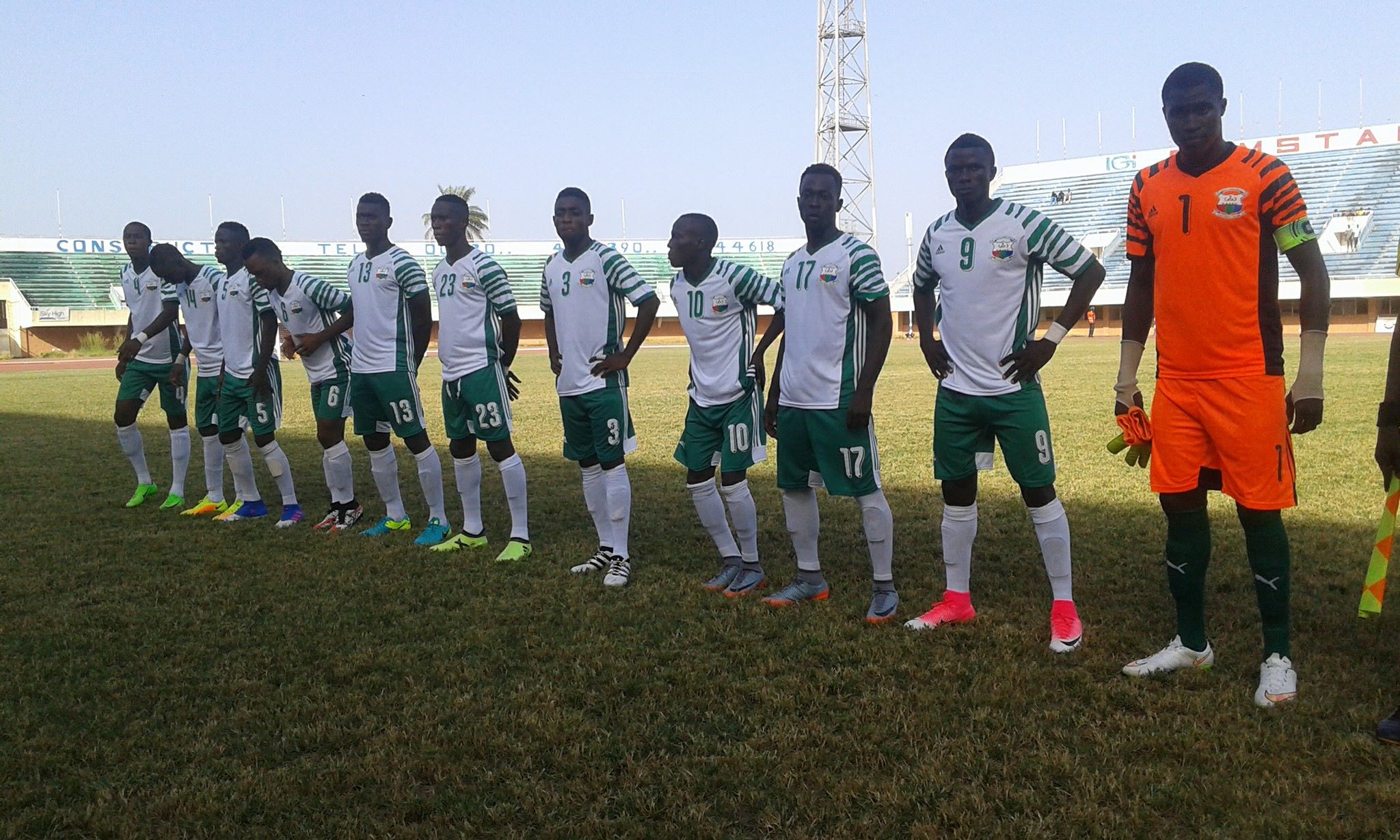
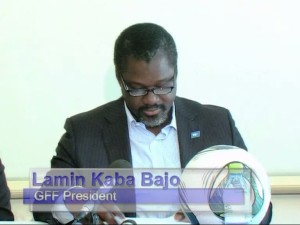
By Omar Jatta:
As Part of the constitutional mandates penciled in the Federation’s accord, The Gambia Football Federation is holding it’s Annual General Meeting today the 30th December, 2015, at the Friendship Hotel, situated at the Independence Stadium in Bakau.
The meeting is to help the Federation in convening the annual reports on all sectors of it’s affairs to stakeholders as required by the constitution at the end of each year, with a general review of it’s fiscal informations such as the audit accounts and the financial statements, alongside the preview of the planned budget for the coming year.
In a statement released from the Federation’s Secretariat, the governing body revealed details and schedules of the high profile meeting.
“The Gambia Football Federation is pleased to announce that it will hold its Annual General Meeting on Wednesday 30th December, 2015 at the Friendship Hotel Hall, Independence Stadium in Bakau from 10:00am to 16:00pm,” it said in the statement.
Adding: “This is a constitutional provision that requires the Federation to convene a stakeholders meeting at the end of each year to discuss amongst others the budget for the succeeding year 2016, audited accounts and financial statement and the activity report.
“As customary, the AGM agenda would be moved and adopted by Members before a review of the previous minutes and matters arising to be discussed.
“The event would be presided over by GFF President Lamin Kabba Bajo and all executive members of the GFF including representatives from all 1st and 2nd Div League Clubs ( Male and Female), allied Associations and other relevant football stakeholders.
“In this regard, the Media family is graciously invited for coverage of the event and thus each Media House is urged to send in only ONE personnel for coverage. While thanking you for your partnership, wish you good luck,” it concluded.
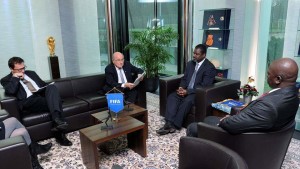
This year’s review has come at a very critical time in our nations football, having failed in our attempts to make the 2018 World Cup in Russia, following our team’s elimination by Namibia in the double tie preliminary rounds in October, which was preceeded by a couple of unconvincing performances and results in the 2017 African Cup of Nations qualifiers, which led to the sacking of the national team coach, Swiss national: Raoul Savoy a month ago. A move that has left fans calling for an urgent appointment of a new coach, with some preferring a home based coach as to a foreign one.
However, appointing a coach is not the only issue affecting out country’s football that needs addressing, but many other things, among them the urge to find solutions to our constant failings with subsequent team’s in our search for our place in World football.
Which necessitates for this year’s AGM to be much broader perspective than just fiscal reviews and merry makings, but rather a thorough and detailed multidisciplinary review into our shortfalls in the development of our game in the past four decades of International football.
Our Football Federation should seize the opportunity to look into ways of investing and creating new structures, with the adoption of a more modern approach in running and maitaining the theme of our national football.
With changes beyond the superficial nucleus of our football set up, instead let it be thorough, if possible drastic. Starting with the selection of a new coach. A position whose occupant should in my view be driven by credentials than his passport. It shouldn’t, by no means be a case of chosen a Gambian at all cost. Ideally if a Gambian out somewhere with the right credentials comes along, hunky-dory – no questions, he should be given the job, however thesame should be the case for a foreign coach who comes into the fray with the right credentials.
The most important thing here should be for the decision makers to widen their net to cover all areas of the pool they are fishing from and they should get it high on their list of criterias in the selection process, to hire someone with an eye for talent – someone who can spot and nurture raw talents to flourish into the right blooms.
As it’s evident, The Gambia’s shortcomings in the game stems from the lack of structured training from an early age, than talents. There are footballers in the country blessed with the right talents to cut it at the top level of the game, but may be lack the training required for meeting the demands of the modern game. Mainly, understanding the tactical and positional nexuses of the game, buttressed by the right attitude on and off the pitch.
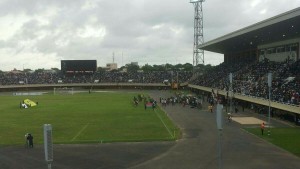
The new coach should be someone with a long term, feasible plan. One who will scout far and wide, from Kartong to Koina, for the best young talents in the country and train them into adopting a system of play that befits the game today – personally I favour the high pressing game trained and exhibited by the Barcelona team, which in essence requires great technical ability to win and maintain possession.
Now that sounds ambitious, but the key word here is ‘TRAINING’ – a training guided by dedication, determination patience and perseverance – the core principles that are critical in bringing a viable style of play to any team, club or national.
The Federation should should look into ways that will enhance these trainings by investing in a high tech training complex modelled around something similar to ASEC Mimosas academy in Ivory Coast, who’s produce the vast array of Ivorian players playing in some of the top leagues in Europe including the likes of the Toure brothers, Kolo and Yaya. A place where players as young as eight years are scouted from all parts of the country and given both football and academic trainings designed around the country’s mainstream school curriculums.
Adding to that, it’s an open secret that the current dominance of Germany, Spain and Belgium in World football is no accident, but the returns of a viable system that was designed and adopted. And it’s the best exhibition of the importance of training football players from an early age.
In Euro 2000, Germany were eliminated in the group stages, causing a huge embarrassment to the World Champions, which then forced the German Football Federation DFB into a total overhaul of the country’s youth football development policies, by drawing strategies involving the DFB, the Bundesliga and the clubs to help develop more technically proficient homegrown players. This plan led to the creation of academies right across the top two divisions.
Now in just over ten years, more than three quarter of the German team that won the World Cup in Brazil came through the DFB’s talent development programme, which was introduced in 2003 with the aim of identifying promising youngsters and providing them with technical skills and tactical knowledge from an early age, covering 366 areas of Germany. This impressive initiative caters for children aged 8 to 14 and is served by 1,000 part-time DFB coaches, all of whom must hold the Uefa B licence and are expected to scout as well as train the players and the result is there for all to see with the dominance of the German national team and clubs.
Before moving further this is by no means comparing Germany to The Gambia, however if you want to be the best, you must learn and emulate the best.
Having said that, I believe, realistically, the ASEC Mimosas’s model is more feasible for The Gambia at this stage as The German mode requires lot of resources.
The Gambian Federation can make the most of the newly refurbished FIFA Goal Project in Yundum, a centre sponsored by the World Football Governing Body FIFA as part of their plans to help national associations have good working condition in order develop the game of football. Or better still they can redevelop part of the Independence Stadium into a Federation run boarding School/ accademy, where the national head coach will lead a team of football and academic trainers with a guided footballing programme alongside a mainstream school curriculum to train the best young talents in the country, from as young as eight years.
That way taking the burden of developing footballers away from the football clubs which will allow them to invest their resources in other areas of maintaining a sustained progress in and around the continent.
Let’s all hope this year GFF AGM will be the rebirth of Gambian football.

